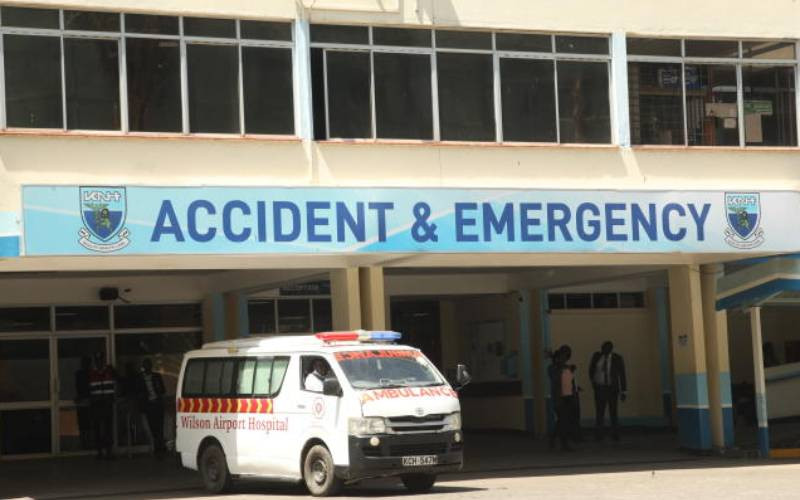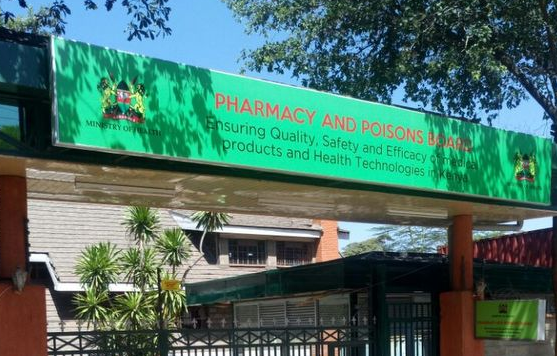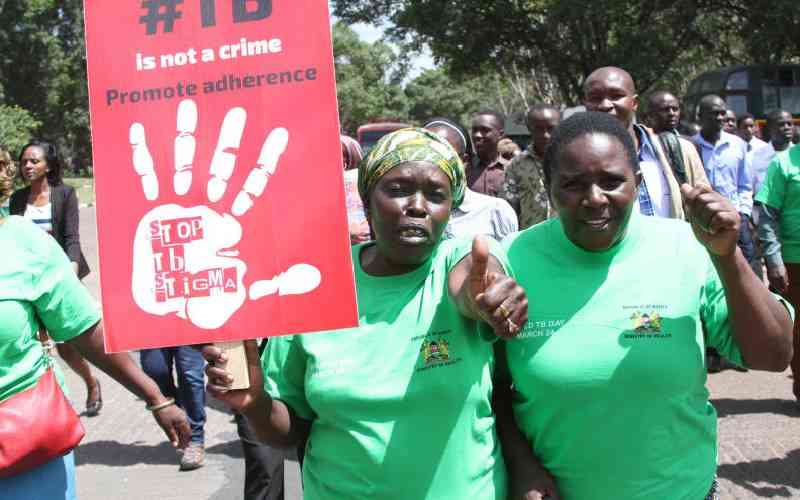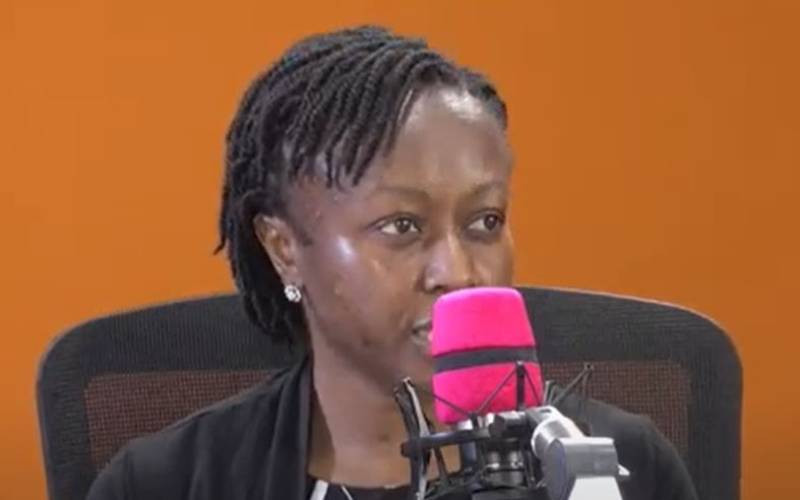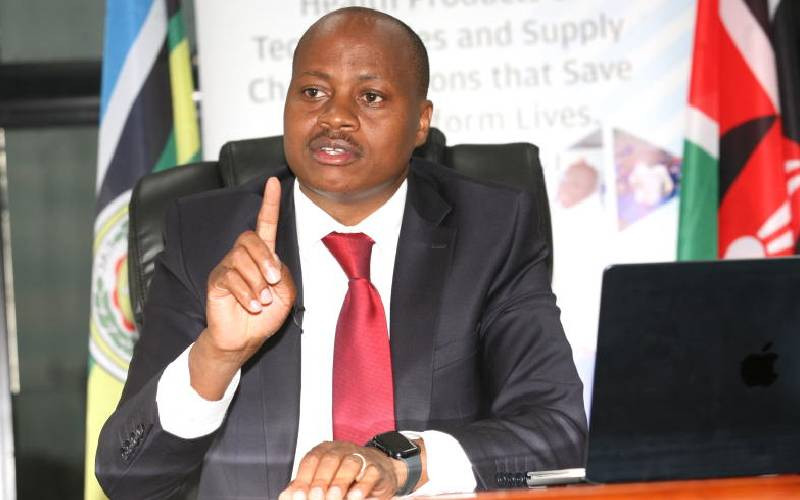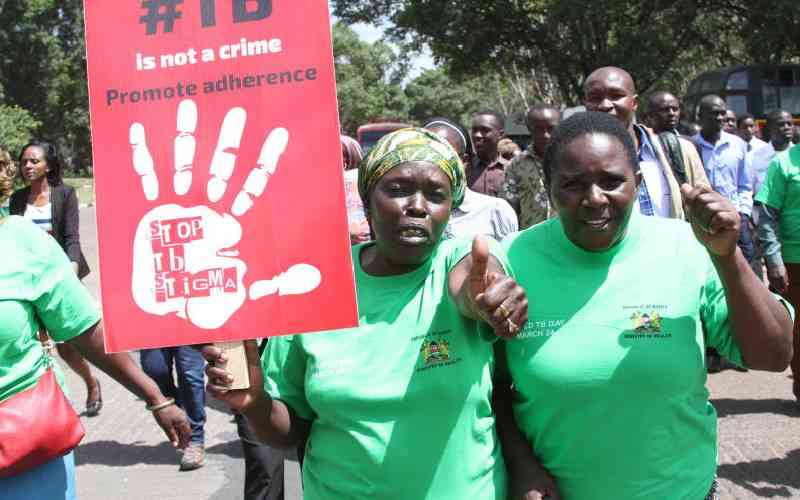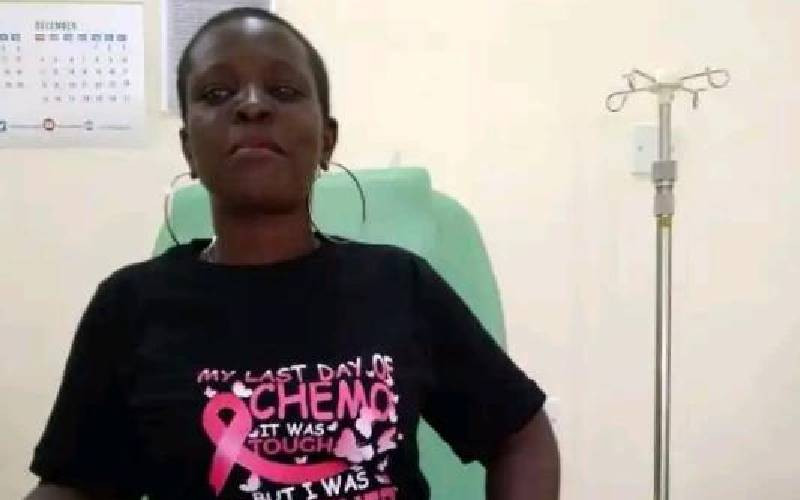
It was a fine morning, and like any other day, Roselyn Atekah was busy sweeping the compound in her homestead before shifting to other chores.
As the 35-year-old and mother of two bent down to pick up the last few leaves, she felt a sharp pain in her breast that she has never experienced.
"The pain was so intense, I threw the leaves on the ground and examined my breast. To my shock, I noticed that there was a lump growing in my breast," says Roselyn.
Confused about what was going on, she sat down and counted the days before her next period. Satisfied that it must be one of those menstrual symptoms that her friends always talked about, she stood up and went about the rest of her day.
"As I was on my period, I assumed the lump would go away after a few days," Roselyn says. After all, the pain had subsided and she had a lot to do.
Two months later, she started to experience loss of appetite, fatigue and weight loss.
"That was in May last year. I went to the sub-county referral hospital, where I was sent for an ultrasound," she says.
After the ultrasound, the doctor recommended a biopsy (a procedure to remove a piece of breast tissue for tests). "When I arrived at the hospital for the biopsy, the doctor decided that he would conduct a lumpectomy (surgery to remove abnormal tissue) to be sure of what he was suspecting," Roselyn narrates.
- Journey to Surviving Cervical Cancer
- Survivor opens safe house for minors undergoing cancer treatment
- Why women aren't lining up for life-saving screening, vaccine
- Teachers at the forefront of getting girls vaccinated against deadly virus
Keep Reading
She says she will never forget July 19, when a conversation with her doctor led to the revelation of shocking test results.
"It was just a normal conversation until I insisted that the doctor tells me what was wrong with my breast and what that lump was. He broke the shocking news that I had breast cancer Stage II."
After a moment of silence, to absorb the news, Roselyn says her mind shifted to the cost of treatment and how she would manage the condition. In response, her doctor sent her to a specialist at a referral hospital.
"After the August elections, I went to surgery where they removed the lymph node and did the full-body computerised tomography (CT) scans just to make sure no more cancer was remaining in the body," Roselyn says.
"I started chemotherapy at the end of September. I finished my eighth and last session on February 28 this year, and I will be starting radiation soon," Roselyn says.
Dr Clifford Okoth of Wellcare Medical Centre in Nyali, Mombasa County says chemotherapy is sometimes given before surgery known as neoadjuvant therapy which is used to shrink larger cancers.
"Chemotherapy is used to allow the surgeon the best chance of removing cancer completely rather than the entire breast and decrease the extent of disease in lymph nodes, allowing for less invasive lymph node surgery and also reduce the chance of cancer returning," Dr Okoth says.
He adds that chemotherapy comes with side effects such as hair loss, fatigue, loss of appetite, nausea and vomiting, diarrhoea, skin and nail changes, and also an increased risk of developing infection due to fewer white blood cells that help fight infection.
"Certain chemotherapy drugs for breast cancer can cause long-term side effects. One possible side effect that may not go away is infertility as anti-cancer drugs damage the ovaries, which may cause menopause-like symptoms such as vaginal dryness as it depends on the age it may lead to premature permanent menopause," Dr Okoth says.
He says that chemotherapy carries a small risk of weakening the heart muscle and causing other heart problems as some of the medications are associated with a higher risk of future heart problems.
 The Standard Group Plc is a multi-media organization with investments in media platforms spanning newspaper print
operations, television, radio broadcasting, digital and online services. The Standard Group is recognized as a
leading multi-media house in Kenya with a key influence in matters of national and international interest.
The Standard Group Plc is a multi-media organization with investments in media platforms spanning newspaper print
operations, television, radio broadcasting, digital and online services. The Standard Group is recognized as a
leading multi-media house in Kenya with a key influence in matters of national and international interest.

